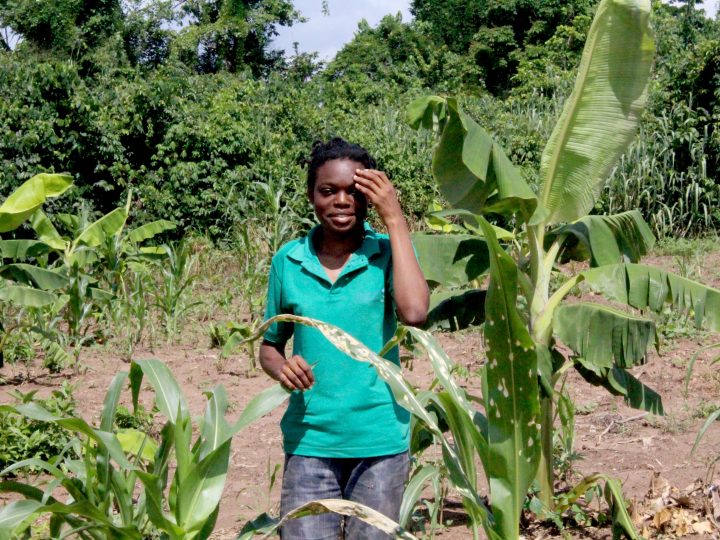
Development as it is known today could not have progressed, nor survived, without an adequate food supply. Hitherto food was somewhat taken for granted by most leaders despite the fact that more than half of the population of the world were hungry. It remains a fact that world food production far exceeds the amount necessary to feed the world population; a phenomenon particular of developed countries on how they waste food whilst food is scare in some developing countries. Poor people can’t afford basic daily required amount of food in most developing countries. Farmers who dominate populations in developing countries will not grow more food than the amount needed by their families, unless they are selling or exchanging it for something they need. Indeed we must grow more food to feed rising populations and with help from affluent nations by 2050, as the FAO has said if the world is to feed itself. In an attempt to salvage this, various pro food technologies have been developed over the decades, chiefly among which is the Genetically Modified Organisms (GMOs).
Genetic modification (GM) technology has great potential to increase agricultural productivity and improve food security in Africa on the condition that it would be managed fittingly. A GMO plant is one that has been genetically transformed using genetic engineering systems to display a resistance to herbicide, which can be positive to farmers, permitting less work so more crops can be harvested.
This goes beyond the normal tissue culture in biotechnology we are used to which comprise taking disease unaffected plant parts and cultivating in test tubes. But controversy surrounding the safety of genetically modified organisms (GMOs) contributes to limited adoption of GM agriculture in much of Africa.
GM crops are not perfect neither a no-nonsense saviour to global agricultural miseries. Advocates say its benefits include a bulge in agriculture production by approximately $100 billion and have averted nearly 500 million kg of pesticides from being sprayed since the technology was first commercialised near two decades ago. The GM crops commercialised so far are herbicide and/or pest resistant. China claims that, GM cotton has assisted their farmers to raise yields by nearly 6% since 1997 and lessened the use of insecticides by around 80%. Could it be a move to feed their numerous populations? Benefits have been exaggerated in developing countries and that the use of GMOs has been too often driven by the multinationals to monopolise agribusiness and exploit small farmers.
To think as an environmentalist, GM foods are merely malicious, and understudied. Literature on GM is highly heterogeneous, since the potential impact of GM crops on biodiversity can be investigated at different levels (crop, farm and landscape) and different organisms or microorganisms (target and non-target) could be considered. This has raised much controversy. Its effect on human life remains scientifically unknown but this is not to say that we are not to harness the technology. Research done on animals have shown some alteration in metabolism, inflammation, infertility and at times kidney failure. Could it be a possible destructive tool used by agribusiness giants to bully global seed markets and extinguish smallholders? Arguments like making moves to sustainably offer food to meet a booming global population is not enough to root for GM. It is true that man can and must prevent the tragedy of famine in the future instead of merely trying with pious regret to salvage the human wreckage of the famine, as he has so often done in the past. Major GM giants claim that they run erudite tests to prevent mismatching of genetic materials but this remains a chance because scientists can’t foresee all the costs. There is, for example, the leeway of creating brand-new allergens.
GM crops have only been commercialized in Sudan, Burkina Faso, South Africa and Egypt with its adoption increased steadily over the past 17 years due to the socio-economic and environmental benefits, particularly in developing countries including countries in Africa. Ghana has a biosafety law which has been approved by the president while in Nigeria the biosafety law has yet to receive presidential assent, although on-going confined field trials of GM cowpea, sorghum and cassava are permitted. Our farmers have one thing that works for them; that is relying on their traditional seeds and plant parts for propagation. If they rely heavily on modified seeds, over time they will lose their traditional seeds which they have kept over the years. Relying on new GM seeds for propagation means that, when its prices go up, not all farmers can afford as this will increase the cost of production and subsequently the cost of food. They could exit agriculture and this would have a social consequence.
To think pro-development, I foresee a new ‘seed colonialism’ that will imperil farmers productivity the more. History can repeat itself just as the Green Revolution half a century ago helped the rich farmers who had more physical and natural capital to be more successful at the expense of smallholders. Some rather got into debts, many more committed suicides aside its devastating environmental consequence which we see partly as climate change and the erosion of civilisations. Over time if they lose their traditional seeds, this will force them to be dictated to by these agribusiness giants. Research too has shown that insects are not in agreement with GM plants and this will affect pollination and crop production.
The present challenges and the solutions we need are more intricate, by an order of scale. We will need to bypass sector commercial, academic and governmental silos and think more tactically and holistically about how we can face the inter-connected matters that need cohesive approaches and solutions. We need to re-think our research and innovation systems to facilitate multidisciplinary, collaborative research at a range of scales.
The notion that GM will increase farmer yields and empower them better economically, and make them wealthier is just hyperbolical. A function of wealth creation in farming is contingent on the ability of farmers to sell what they produce at favourable prices but the invisible hand of the market which is demand and supply dictates this. Increasing yield not just per farmer has more tendency of reducing farmer’s income than increasing it if oversupply in markets is not tackled and food could go rotting on farms due to abundance. An effective demand is thus necessary to absorb excesses. Ghana needs to have means of passing on food from the field for the market and to the consumers and other end-users since but our marketing is largely informal. The many and diverse actions and means of doing this constitute a clear output distribution system.
Fighting hunger, malnutrition and poverty while defending and refining the environmental which supports millions of peoples’ livelihood, in the face of severe resource limitations and global warming will necessitate human ingenuity, creativity and innovation but more sustainable intensification methods of farming are needed.
Our agriculture and food systems are already stained. Regardless of many efforts to step up food production over the centuries, many people remain hungry and malnourished. A lot more eat too much, or the wrong sort of food and this kills or makes them ill. Many of the agricultural systems have massive effects on health and the environment. A type of agriculture based more on agro-ecological ideologies and in accord with people, their societies and cultures is desirable to kerb the effects of the damages already caused and save the future.
There is an alternative if GM food technology is “shot down”. A better pathway could be to farm the Conservation Agriculture (CA) way. Adoption and scaling up of CA has significant potential to increase smallholder livelihoods, agricultural productivity and food security and consequently reduce environmental degradation in Ghana. It is also a strategy for adapting to increasing climatic variability due to climate change. Following small-scale success of CA in other parts of the world such as Brazil, Tanzania and Uganda, it is both highly relevant and feasible if the shocks initially witnessed could be cushioned
CA is a production system that has three core principles, which are basically applied simultaneously. The three principles are minimal soil disturbance (no- tillage), permanent soil cover (cover crops and associated residues or mulches) and suitable and diversified crop rotations. With cover crops and associated residues or mulches, it will help to maintain a buffer moisture content which could supplement the moisture stress causing drought.
We could increase research in CA as a process that acknowledges uncertainty in inputs and outputs and takes into consideration that farming environment and climate change at any time through an iterative process to prevent future occurrences. Nearly positively, however, the first vital constituent of social justice is satisfactory food for all mankind. Food is the moral right of all who are born into this world.
Author- David Asare Asiamah
1 Comment
-
We must keep on the struggle to disallow the passage of the GM Bill into law by Parliament. Those pushing the implementation of this technology seem not to understand the implications on our future generations.
AgroMindset, let’s keep the preventive fire burning, FOREVER.





